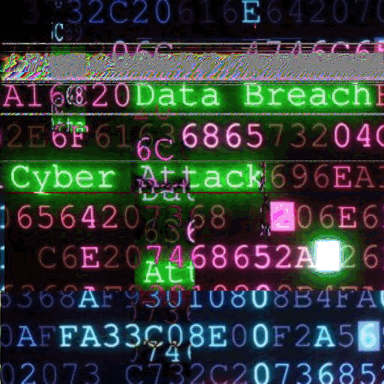Are you a software professional looking to hone new cybersecurity skills?
You’re not alone. Costs related to cybercrime hit a new high last year, resulting in an average total cost of $4.24 million, up significantly from an average of $3.86 million in 2020. That’s only expected to grow, especially with the onset of remote work, which reportedly cost business $1.07 million higher on average than security breaches where remote work wasn’t a factor.
Whether your company has policies aimed at preventing this or not, there are reasons to be concerned about cybersecurity at an individual level, too. From identity theft to credit attacks, more than just big companies are being targeted these days.
Check out this roundup of local resources aimed at preparing you for what’s expected to be an even bigger year of cyber attacks. There’s something for you whether you’re in need of basic skills, or a pro looking for professional development to advance your career.
Did we miss anything? Email pittsburgh@technical.ly and we’ll consider adding it to the list.
New Horizons Cybersecurity Training
As part of a cybersecurity-themed month in 2020, Forest Hill-based New Horizons Computer Learning Center published a number of free webinars and resources on how users can protect themselves and their companies from attacks. All of those are still available through the center’s website, in addition to several affordable information security certifications catered to a wide range of experience levels, from end users to cybersecurity professionals with over five years of experience. Whether you’re looking to hone your personal security skills or make your company’s infrastructure better prepared for attacks, this local learning and training center has a resource for you.
University of Pittsburgh Cyber Boot Camp
This bootcamp out of the University of Pittsburgh’s Professional Institute at the School of Computing and Information offers a micro-credential through the university in cybersecurity. The two-part training (plus prerequisites) will teach students how to think like a hacker and identify flaws through mock penetration attacks. No coding or programming experience is required to join the bootcamp, though the first part in understanding vulnerabilities and exploits is a prerequisite for the second part in penetration testing. While this bootcamp promises to give you highly relevant skills among the rampant cybersecurity attacks of today’s world, it does come with a tuition price tag of $5,500.
Schneider Downs Cybersecurity Resources
This public accounting firm in downtown Pittsburgh often updates its website with cybersecurity resources ranging from white papers to case studies to the company’s own thoughts on what to look out for. While it may be surprising that a company focused on taxes would offer such resources, Schneider Downs’ website is actually one of the places to find the most comprehensive free information on protecting yourself against cybersecurity threats. There’s a lot to comb through, including an archive of the company’s thoughts on various cybersecurity tactics and theories, so be sure to consult this resource if you have a specific idea of what you want to work on.
PA State Protecting Yourself Online
Aimed toward end users, this cybersecurity guide from Pennsylvania’s state government has tips on preventing identity theft, choosing safe passwords, securing mobile devices and more through a mix of videos, written instructions and resource links. It has tips for how parents can maintain cybersecurity for the whole family as computer and mobile devices become more commonplace for children from an early age, as well as advice on how to protect your work from home environment.
Penn State University Cybersecurity Certificate
Offered in partnership with the New Horizons Computer Learning Center, this certificate through Penn State’s Beaver County campus has a number of trainings in cybersecurity, with a wide range in price. From a four-hour online course that illustrates the number of cybersecurity threats today to a 40-hour series aimed at preparing students for the CompTIA Security+ certification examination, there’s something for all experience levels. Though the price tag on a few of the programs are a bit high, you’ll walk away from them with new certified cybersecurity skills for your resume.
CMU Information Security Office Training and Awareness
This brief guide from Carnegie Mellon University’s Information Security Office outlines a variety of security awareness resources, including password guidance, phishing scam avoidance, safe web browsing tips, public internet safety and more. Though some of the university’s resources are exclusive to students and faculty, many of the tips in this guide are free and open to the public. There’s even a glossary for newcomers to the cybersecurity world looking to learn more.
CMU CyLab YouTube Channel
CMU CyLab Security and Privacy Institute is focused on research and education aimed at building talent and expertise for the next generation of security and privacy professionals. As a part of that mission, CyLab offers a number of events and webinars, many of which have been posted on the institute’s YouTube channel. From faculty research highlights to full-length seminar videos, CyLab’s YouTube channel is a great place for cybersecurity experts to learn more about what’s new in the field today.
Ford Office Technologies Cybersecurity for Beginners Guide
This Connellsville-based office equipment and IT consulting company has one of the most thorough free guides for cybersecurity novices. The guide, which is a downloadable ebook, offers business owners advice the basics of common cybersecurity attacks, how hackers specifically target small businesses, and how to secure your company’s systems against those threats. If you aren’t sure where to start your own cybersecurity training, this introduction might be a great place to start.







